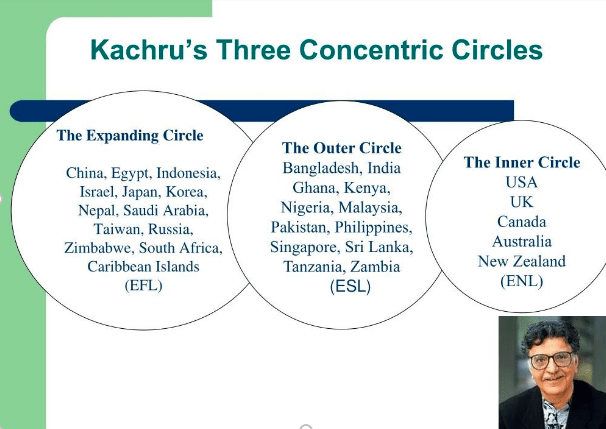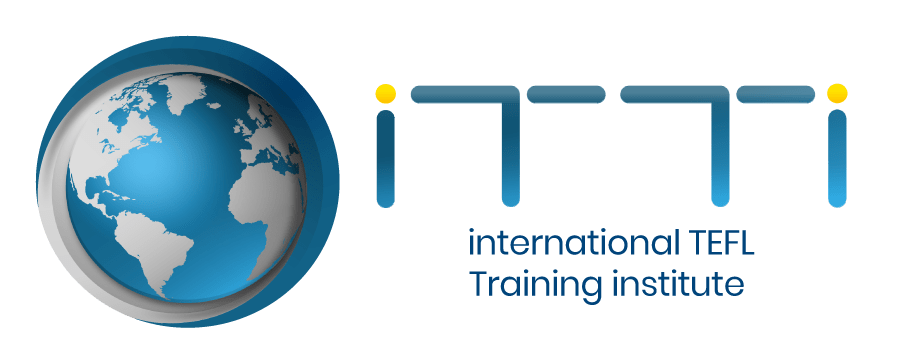Preparing for the iTTi Teacher Trainer Certification Test. Passing it the first time around.
THE NATURE AND VALUE OF WORLD ENGLISHES, DIALECT, AND VARIATION
The term, WORLD ENGLISH, became popular in the 1960s and has increasingly become a way to refer to English, which dominates many aspects of the political and economic progress of the world. The term World Englishes describes American English, British English, Indian English, South African English, and, according to many, the English used by other people to communicate in world trade, travel, and politics. This makes it difficult for teachers to decide which English to teach. Estimates suggest that non-native English speakers outnumber native speakers. The question “Whose English are we talking about?” becomes a very important topic in the ESOL classroom.
The Indian linguist Braj Kachru describes the English-speaking world as you can see it in below picture

While the Inner Circle comprises traditional English-speaking countries, the Outer Circle is composed of former colonies with close ties to the U.K. and the U.S. The Expanding Circle includes all other countries where people learn English for reasons of information technology, travel, work, etc.
Dialect Variation is a technical term for a specific form of a language. Wherever you go, you will have the phenomenon of dialects. You will encounter a southern French dialect, the Yorkshire dialect, or the dialects throughout the United States. The term generally refers to regional speech; however, it can be used to indicate class and occupation: a regional dialect, a rural dialect, a class dialect—even an occupational dialect (McArthur, 1992).
Dialects exist in most languages. They feature distinctive accent, grammar, vocabulary, and idioms. In general, dialects have been considered inferior to the “standard” form of the language, such as the Queen’s English or Standard American English. Standard languages tend to develop among officials of a country and its educated citizens. They are not considered a dialect but non-regional or supra-regional. Many users of standard languages tend to look down on those who speak dialects as “low,” “vulgar,” or “illiterate” (McArthur, 1992).
If you want to learn more about language and dialect, watch this interesting interview with Noam Chomsky about the “Concept of Language.” Here is the link The Concept of Language (Noam Chomsky) – YouTube..
